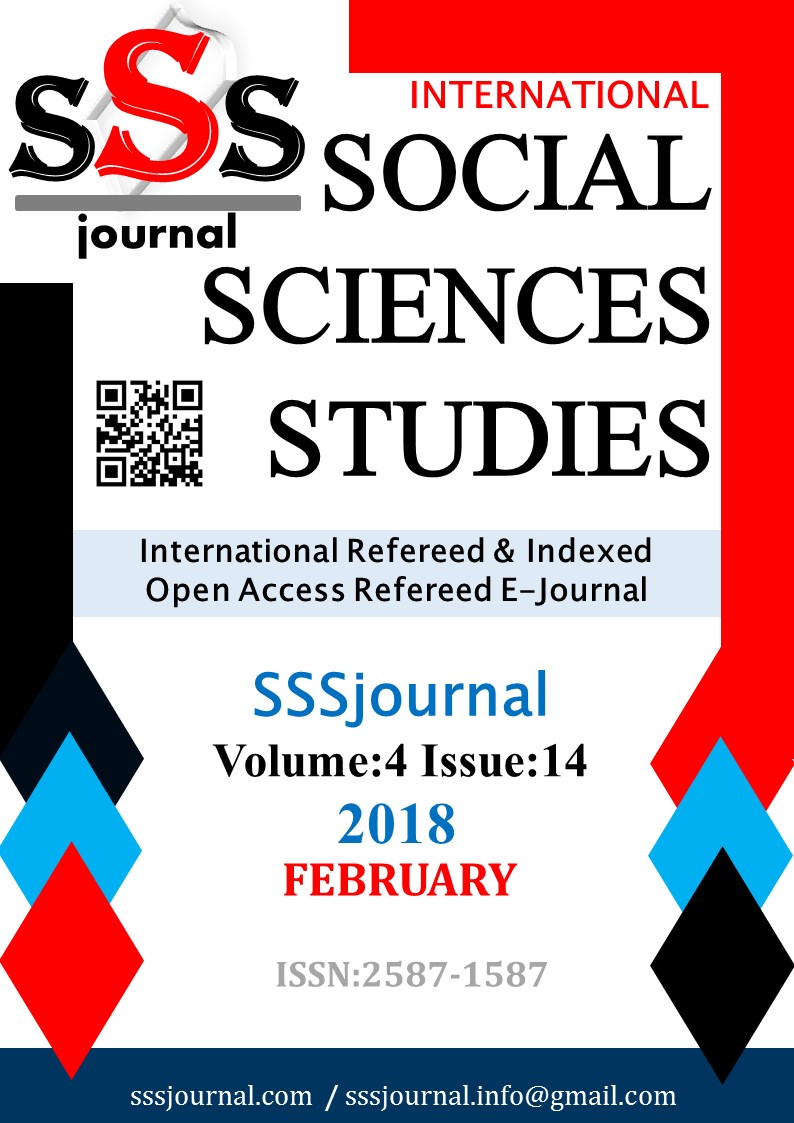Author :
Abstract
Ülkelerde ekonomik istikrarın sağlanması için mali disiplinin sağlanması gereklidir. Ancak birçok ülkede mali disiplinde bozulmalar (bütçe açıkları, yüksek kamu borçları vb.) olmuştur. Bu yüzden ülkelerde maliye politikası üzerine getirilen kısıtlamalar (mali kurallar) son yıllarda artarak devam etmektedir. Geçmiş dönemlerde uygulanan ihtiyari maliye politikalarının ekonomiler üzerindeki olumsuz etkilerinden dolayı mali kurallara ihtiyaç duyulmuştur. Ayrıca son yıllarda görülen ekonomik krizler de, maliye politikasının kurallara bağlanmasını gerektiğini göstermektedir. Ancak bu mali kuralların seçilmesi ve uygulanması her ülkenin yapısal problemlerinden dolayı farklı olabilmektedir. Dolayısıyla bu kuralların uygulanması ülkelerin anayasa, yasa, politik anlaşmalar veya bazı düzenlemelere dayanmaktadır. Son yıllarda mali kurallara ilişkin yapılan çalışmalar da artmaktadır. Bu çalışmanın amacı, maliye politikası kurallarına (mali kurallar) teorik çerçevede yer vermek ve ekonomiler üzerindeki olası etkileri hakkında bilgi vermektir.
Keywords
Abstract
Fiscal discipline is necessary to ensure economic stability in the countries. However, the deterioration in fiscal discipline has become (budget deficits, high public debt etc.) in many countries. Therefore, the restrictions on the fiscal policy in the countries (fiscal rules) have been increasing in recent years. Fiscal rules have been needed because the negative effects of discretionary fiscal policies on the economies in the past. Moreover, the economic crises seen in recent years also indicate that fiscal policy must be tied to the rules. However the selection and implementation of these financial rules can be different due to the structural problems of each country. Therefore, the application of these rules is based on the constitution, the law, the political agreements or some regulations of the countries. The studies on fiscal rules have also increased in recent years. The aim of this study is to give theoretical framework of financial policy rules (fiscal rules) and to inform about the possible effects on economies.
Keywords
- Alfaro, L. & Kanczuk F. (2016). ‘’Fiscal Rules and Sovereign Default’’, NBER Working Paper Series
- Alfaro, L. & Kanczuk F. (2016). ‘’Fiscal Rules and Sovereign Default’’, NBER Working Paper Series 23370.
- Anderson, B. & Minarik J. (2006). ‘’Design Choices for Fiscal Policy Rules’’, OECD Journal on Budgeting. 5(4): 159-208.
- Bayoumi, T. & Eichengreen B. (1995). ‘’Restraining Yourself: The Implications of Fiscal Rules for Economic Stabilization’’, IMF Staff Papers, Vol.42, No.1.
- Bedogni, J. & Meaney K. (2017). ‘’EU Fiscal Rules and International Expenditure Rules’’, Irish Goverment Economic and Evaluation Service Department of Public Expenditure and Reform Staff Papers.
- Berganza, J. C. (2012). ‘’Fiscal Rules in Latin America: A Survey’’, Banco De Espana Documentos Ocasionales No.1208.
- Bouakez, H.; Chihi F. & Normandin M. (2014). ‘’Measuring the Effects of Fiscal Policy’’, Journal of Economic Dynamics & Control, 47: 123-151.
- Braun, M. & Tommasi M. (2002). ‘’Fiscal Rules for Subnational Governments Some Organizing Principlesand Latin American Experiences’’, IMF / World Bank Conference Rules-Based Fiscal Policy in Emerging Market Economies. Oaxaca, Mexico.
- Dessus, S.; Sanchez J.L.D. & Varoudakis A. (2013). ‘’Fiscal Rules and the Pro-cylicality of PublicInvestment in the West African Economic and Monetary Union’’, World Bank Policy Research Working Paper 6562.
- Drazen, A. (2004). ‘’Fiscal Rules from a Political Economy Perspective’’, Palgrave Macmillan, London.
- Halac, M. & Yared P. (2017). ‘’Fiscal Rules and Discretion Under Self – Enforcement’’, Columbia Business School Resarch Paper No. 17-98.
- Hallerberg, M.; Strauch R. & Hagen J.V. (2004). The Design of Fiscal Rules and Forms of Governance in European Union Countries’’, European Central Bank, Working Paper Series No.419.
- Kopits, G. (2007). ‘’Fiscal Responsibility Framework: International Experience and Implications for Hungary’’, Magyar Nemzeti Bank Occasional Papers 62.
- Kopits, G. (2001). ‘’Fiscal Rules: Useful Policy Framework or Unnecessary Ornament?. IMF Working Paper WP 01/145.
- Kopits, G. & Symansky S. (1998). ‘’Fiscal Policy Rules’’, IMF Occasional Papers 162.
- Lledo, V.; Yoon S.; Fang X.; Mbaye S. & Kim Y. (2017). ‘’Fiscal Rules at a Glance’’, IMF.
- Milesi-Ferretti G.M. (2003). ‘’Good, Bad or Ugly? On the Effects of Fiscal Rules with Creative Accounting’’, Journal of Public Economics, 88: 377-394.
- Mintz, J. M. & Smart M. (2006). ‘’Incentives for Public Investment Under Fiscal Rules’’, World Bank Policy Research Working Paper 3860.
- Schaechter, A.; Kinda T.; Budina N., & Weber A. (2012). ‘’Fiscal Rules in Response to the Crisis –Toward the ‘’Next-Generation’’ Rules’’A New Dataset’’, IMF Working Paper.
- Schick, A. (2003). ‘’The Role of Fiscal Rules in Budgeting’’, OECD Journal on Budgeting, 3: 4-34.Velichkov, N. (2015). ‘’Fiscal Rules Versus Fiscal Discretions’’, Economic Alternatives, 3: 39-45.
- Von Hagen, J. & Wolff G.B. (2006). ‘’What Do Deficits Tell us About Debt? Empirical Evidence on Creative Accounting with Fiscal Rules in the EU’’. Journal of Banking & Finance, 30: 3259-3279.
- Wyplosz, C. (2012). ‘’Fiscal Rules: Theoretical Issues and Historical Experiences’’, NBER Working Paper Series 17884.





